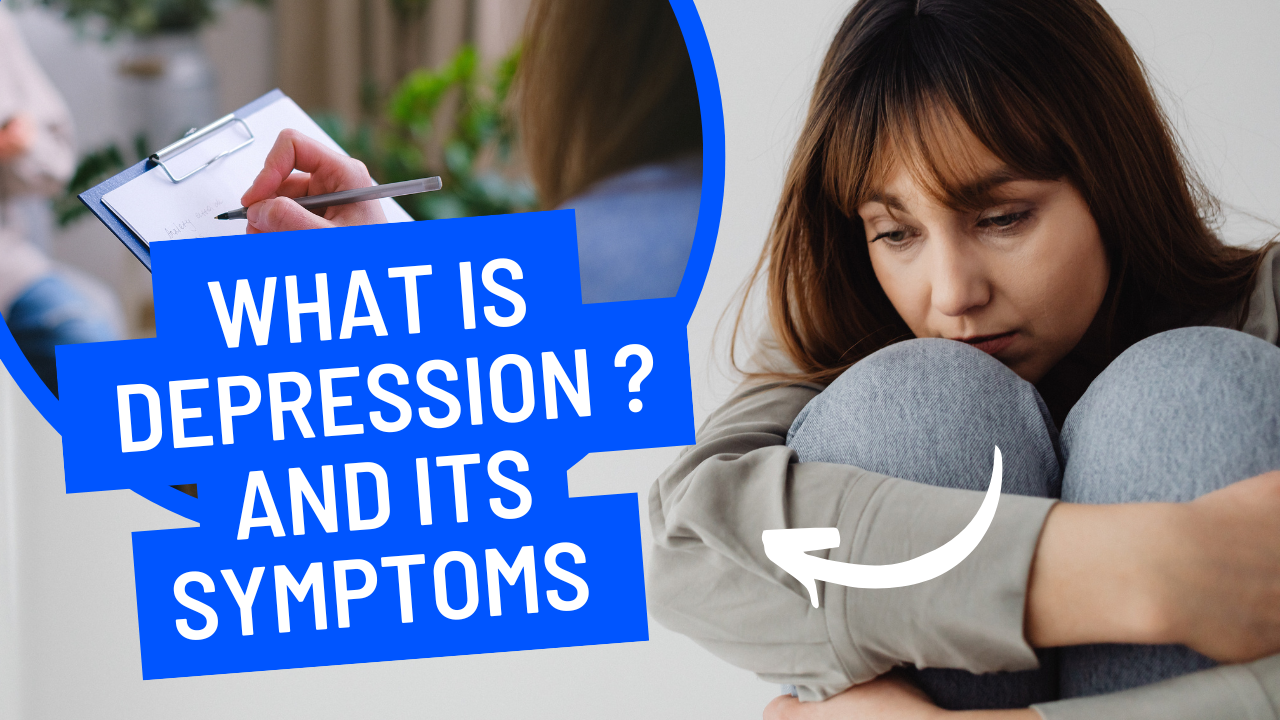A mental illness that seriously interferes with daily tasks and well-being and is represented by constant feelings of sadness, hopelessness, and lack of interest or enjoyment in activities.
Major depressive disorder, which is sometimes known as depression, is a frequent and dangerous medical condition that has a negative effect on one’s emotions, thoughts, and actions. Depression is more than just feeling lower; it interferes with everyday tasks, relationships, education, and employment, and it often decreases a person’s standard of living.
Major key points of depression
- A chronic sense of sorrow or depression
2. A reduction in enjoyment or interest
3. Difficulty with day-to-day activities
4. Physical, mental, and emotional symptoms - Types of depression.
- 1. MDD, or major depressive disorder
2. Depression that does not go away (PDD)
3. Depression following childbirth (PPD)
4. SAD, or seasonal affective disorder
5. Bipolar Disorder
- Reasons:
1. Genetics
2. Chemistry of the brain
3. Modifications in hormones
4. Life experiences (stress, trauma)
5. Health issues
6. Abuse of substances
Options for Treatment:
1. Antidepressant medications
2. Cognitive-behavioral treatment, or psychotherapy
3. Improvements to lifestyle (diet, exercise)
4. Social assistance
5. The application of mindfulness
Signs:
1. Hopelessness, sadness, or nothingness
2. Alteration in energy, desire to eat, or sleep 3. Difficulty concentrating or making choices
4. Social detachment or misery
5. Physical signs (headaches, discomfort)
Time period:
1. Acute: Under six months
2. Chronic: lasting six months or more
Effect:
1. Individual connections
2. Academic achievement in work or school
3. Everyday tasks
4. General well-being
Treatments:
1. Drugs
2. Counselling
3. Modifications in lifestyle
4. Support communities
Depression isn’t
1. Weakness
2. Not failing
3. A hint of faults
Depression is:
1. Curable
2. Controllable
3. Frequent (affects one in four individuals)
Solution for depression
A comprehensive strategy involving modifications to your lifestyle, guidance from professionals, and self-care strategies is required to overcome depression. For direction and support, get guidance from a psychotherapist or counsellor. A balanced diet, 7-8 hours of sleep every night, and regular exercise (30 minutes per day) are examples of lifestyle modifications. Engage in ways to reduce stress, such as yoga, meditation, or practicing deep breathing. Take part in pleasant and meaningful activities. Create a solid support system, including friends, family, and support groups. Use cognitive behavioural treatment to combat negative thinking. If a medical practitioner recommends medicine, take it into mind. Emphasise self-care by establishing feasible goals, cultivating thankfulness, and taking breaks from networking sites and technology. Finally, remind yourself that depression is curable and that recovery is possible, and focus on progress rather than purity.


Leave a Reply